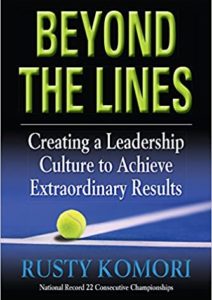People don’t always understand the true definition of coaching. It often gets confused with managing, or directing, or teaching. But there is a very big difference between coaching and those other disciplines. Most of those tasks are concerned with one certain part of the person, be it a subject, like math, or a skill, like a musical instrument. Coaching, on the other hand, focuses on the whole person, ane each of their parts, not just one subset. Especially in a work context, if you’re going to coach someone, you have to understand all the different dimensions of that person. A really big part of being a coach is knowing who you’re dealing with, and how to make a connection with them because the connection is what really drives your ability to change through coaching. Everyone can be a coach, be it a parent, a leader, an employee, or a boss, if they start to build up the person as a whole. Rusty Komori explores how to achieve coaching success in this expert sales interview, hosted by John Golden.
This expert sales interview explores:
- Making choices
- How to develop yourself as a coach
Coaching and Choices:
People struggle to make choices. There is a lot of avoidance around decision making, but people don’t realize that by not making choices, they’re still making choices. The minute that you choose one thing, you by default choose a bunch of other things. One of the biggest things that a coach can do to lead their team to success is to help them make better choices. The more knowledge that we have, the better choices we can make, so one of the best ways to help your team make better choices is to educate them. Another way to coach your team to better choices is to figure out what’s important to them, including an exploration of their goals, what they want to achieve, and where they want to go in life. As a coach or a leader, you might have your own agenda for what you want your team to do, but the best coaches will adapt their agenda to their team and the talent that they possess.
Developing Yourself As A Coach:
As a coach, it’s important to do your own work to make sure that you can successfully coach others. If you are not learning and growing as a whole person yourself, you cannot help your team learn and grow as people either. The first goal is to get a handle on physical tasks. Take running a meeting, for example. Are you inspiring people to get things done, and capturing their attention? Or are you talking to a room full of people who can’t wait for the meeting to end? Make sure you are doing the best you can do at all physical and tangible tasks. The other component of improving yourself to improve your coaching skills is to develop mental toughness. Mental toughness is the ability to create and maintain the right kind of attitude and the right kind of focus, regardless of the circumstances. If your coworker treats you badly, or if you have a bad phone call with a client, you still need to be able to respond appropriately, regardless of the circumstances. In essence, you need to be able to focus and go from one task to the next at the highest level of ability that you’re capable of doing. Embracing these skills and improvements will help you to be a better coach for your team.
Our Host
John is the Amazon bestselling author of Winning the Battle for Sales: Lessons on Closing Every Deal from the World’s Greatest Military Victories and Social Upheaval: How to Win at Social Selling. A globally acknowledged Sales & Marketing thought leader, speaker, and strategist, he has conducted over 1500 video interviews of thought leaders for Sales POP! online sales magazine & YouTube Channel and for audio podcast channels where Sales POP! is rated in the top 2% of most popular shows out of 3,320,580 podcasts globally, ranked by Listen Score. He is CSMO at Pipeliner CRM. In his spare time, John is an avid Martial Artist.









Comments